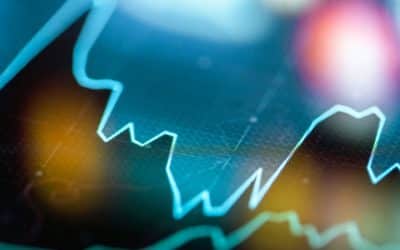Alert from MAPFRE Gestión Patrimonial: beware of meme stocks

Redacción Mapfre
It would appear that meme stocks are back in the headlines as we set out on a new trading year. Meme stocks are shares that have risen sharply in price on the back of comments made on trading platforms from individual investors or by going viral on social media. Once again, the protagonist here seems to be Ryan Cohen, a Canadian investor activist and businessman who was responsible for the GameStop bull run at the beginning of 2021. This time round, Chinese e-commerce giant Alibaba is in the crosshairs.
Daniel Sancho, head of investments at MAPFRE Gestión Patrimonial (MGP), doesn’t see any fundamental reasoning behind this spike in price and once again makes a case for the figure of a trusted financial advisor who can cut through the noise and extract signal, if indeed there is any to be found. “New communication channels and new technologies sometimes complicate our relationship with customers. A simple tweet from an influencer can cause considerable confusion. But we also see it as an opportunity to provide good advice to our clients.” “Of course, we don’t recommend investing in the short term, since any type of buying decision has to be supported by fundamentals, by a valuation or an analysis,” he adds.
Normally, speculators rear their head when market conditions improve, and that’s precisely what has happened in recent weeks, mainly in Europe. "We don’t see 2023 as being a year promising stratospheric returns, but we certainly see an opportunity to invest now, always with a long-term perspective," explains the expert. In fact, as Alberto Matellán, chief economist at MAPFRE Inversión, insists, this optimism could last several weeks and even for the next two months. The reason is that the factors that justified the rebound at the beginning of the year are becoming even stronger: the latest macro data is coming out better than expected and China's policies are going to have a very significant knock-on effect on Europe.
Specifically, one of the catalysts is the expectation around what’s going to happen to inflation, and consequently, the possibility that the monetary institutions will cease tightening monetary policy this year. According to Matellán, the important thing is to see inflation stabilizing at levels between 2.5% and 3%. “The market is pricing in that this will happen toward the end of the year, so that, if these expectations are met, the ECB could put the brakes on rate hikes in the middle of the year at levels of between 3% and 3.5%,” he adds.
The financial sector is a standout in the rally we’ve seen over the last couple weeks, and not without good reason: Matellán once again points to the better-than-expected behavior of the economy, which has an impact on the sector in two key aspects: fewer defaults and a less negative curve.
Finally, in this more favorable context for equities, Matellán recommends focusing a little more on risk. “It’s a time to be less offensive because equities are enjoying fairly positive sentiment and fixed income is at a point where it’s difficult to achieve higher gains via indices,” he concludes.



